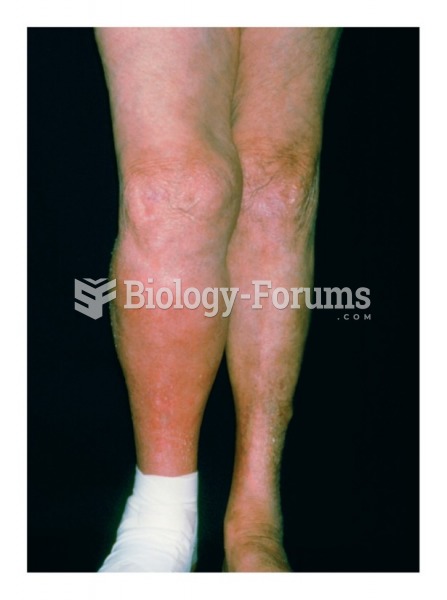|
|
|
A serious new warning has been established for pregnant women against taking ACE inhibitors during pregnancy. In the study, the risk of major birth defects in children whose mothers took ACE inhibitors during the first trimester was nearly three times higher than in children whose mothers didn't take ACE inhibitors. Physicians can prescribe alternative medications for pregnant women who have symptoms of high blood pressure.
All adults should have their cholesterol levels checked once every 5 years. During 2009–2010, 69.4% of Americans age 20 and older reported having their cholesterol checked within the last five years.
Approximately 500,000 babies are born each year in the United States to teenage mothers.
Bacteria have been found alive in a lake buried one half mile under ice in Antarctica.
It is difficult to obtain enough calcium without consuming milk or other dairy foods.







